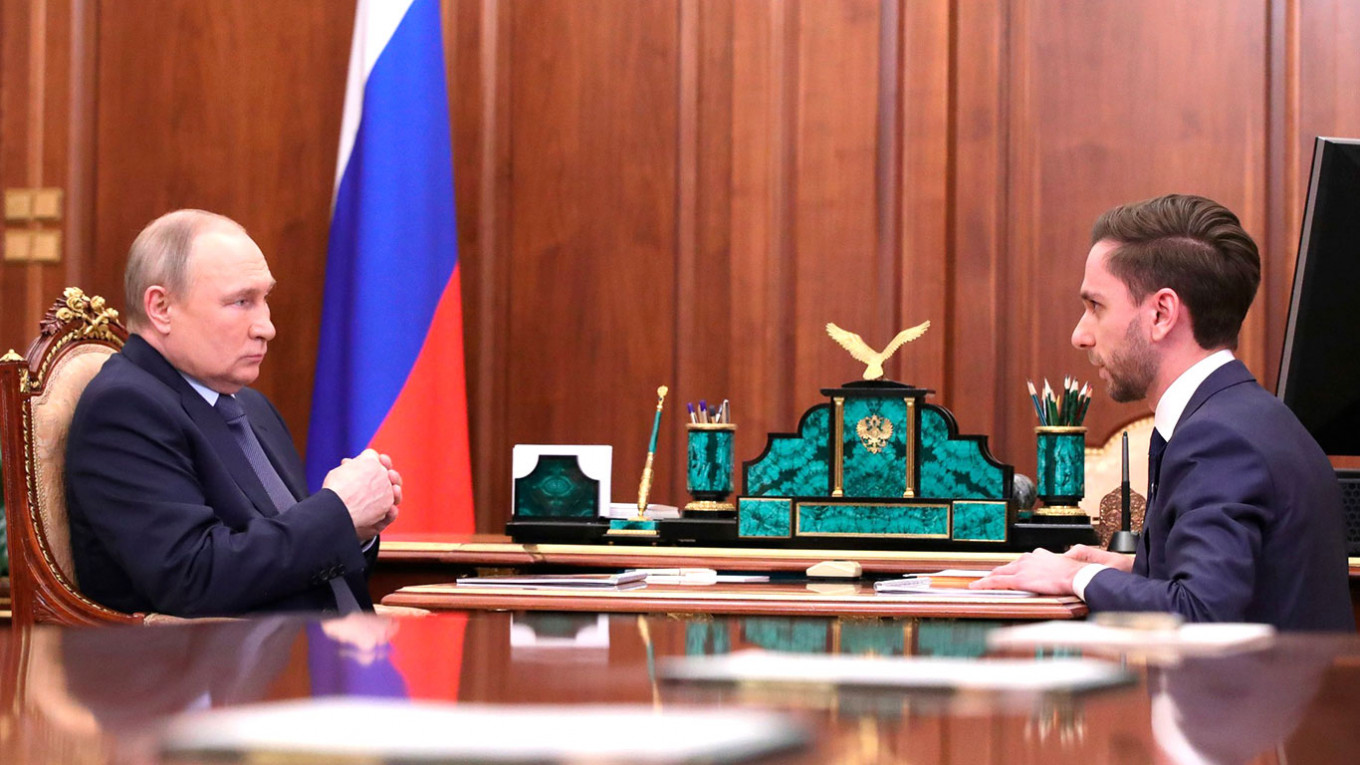
Russia should consider developing a domestic alternative to Wikipedia, President Vladimir Putin said Thursday, questioning the quality of information published in the online encyclopedia.
“Objective, useful, thought-through, but also beautifully and masterfully presented information is in high demand because it is impossible to use Wikipedia alone,” Putin said during a meeting with Maxim Dreval, CEO of the state-sponsored Znanie (“Knowledge”) foundation, according to a Kremlin transcript.
Founded by a presidential decree in 2015, Znanie is tasked with improving Russia’s civil society and educational work. Its key project, “The League of Lecturers,” aims to give government officials and other prominent figures a platform for educating young Russians.
Dreval told Putin that the collective knowledge of Znanie-approved lecturers is “forming the knowledge base that is already becoming an alternative to Wikipedia.”
Putin’s remarks come amid growing concern that Wikipedia will join the list of platforms that have been banned by Russian authorities since it sent troops into Ukraine on Feb. 24, as it presents information about the war that clashes with the Kremlin’s narrative.
Russia’s state communications regulator Roskmnadzor on Tuesday issued a warning to Wikipedia asking the platform to delete “unreliable information” about the “special operation in Ukraine.”
“Authors of articles published on Wikipedia deliberately misinform users by [posting] clearly untruthful information,” said the message posted on Roskomnadzor’s official Telegram channel.
Russian authorities first added Wikipedia to the government-maintained register of prohibited websites in 2012, but the portal has remained accessible in Russia despite frequent warnings and fears of a total block.
The country was reportedly planning to create its own version of Wikipedia by 2023, but the homegrown alternative hasn’t yet materialized.